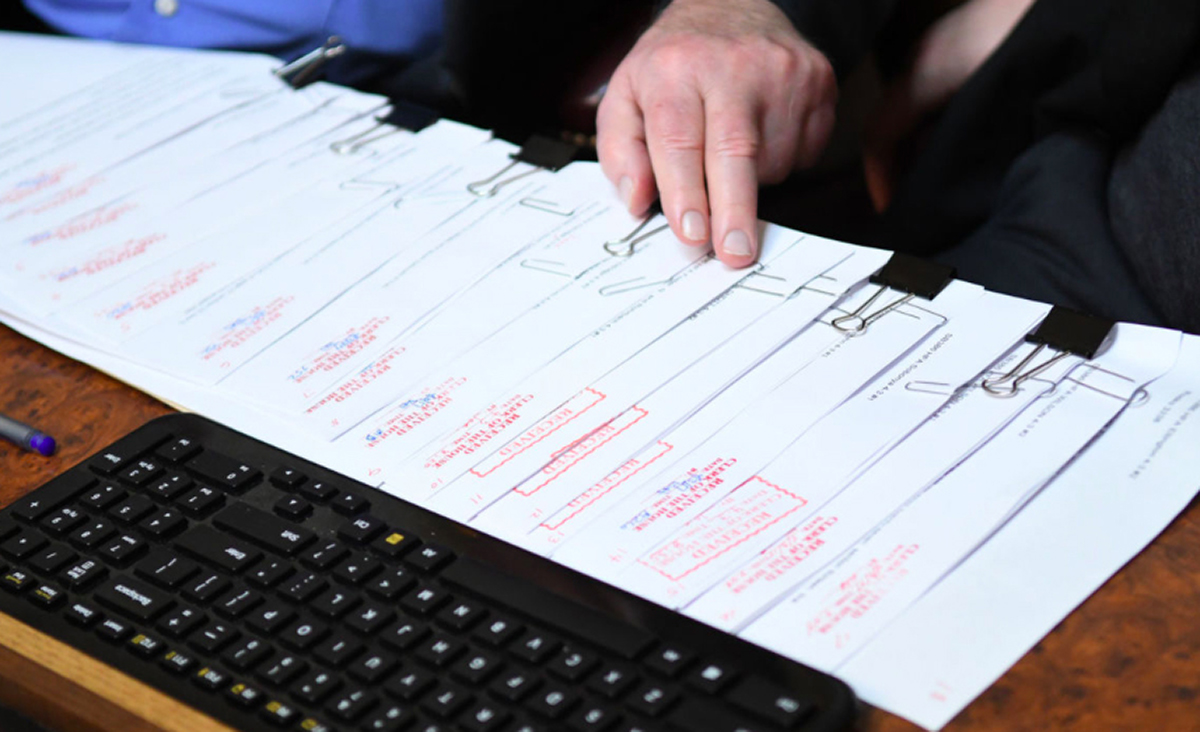By RUSTY MARKS
The State Journal
CHARLESTON, W.Va. — A bill that would allow for the medical use of marijuana has made it through the West Virginia Senate and House of Delegates, but it still has to clear the Senate once again before going to the governor.

(WV Legislature photo)
Delegates voted 76-24 Tuesday, April 4, in favor of an amended version of the legislation, which originated in the Senate as Senate Bill 386. The bill goes back to the Senate, which will have to decide whether to concur with the sweeping changes made to the bill by House Judiciary Committee Chairman Delegate John Shott, R-Mercer.
When the 60-day legislative session began in February, few lawmakers in either chamber believed a medical marijuana bill had a chance of passing this year. Although Senate President Mitch Carmichael, R-Jackson, has publicly said he supports the medicinal use of marijuana, House Speaker Tim Armstead, R-Kanawha, has been morally opposed to such legislation.
However, when the Senate voted 28-6 in favor of Senate Bill 386 on Wednesday, March 29 and sent it over to the House, Delegate Mike Folk, R-Berkeley, made a motion that the bill be advanced without first going to committee. That motion passed, and Armstead was forced to allow the bill to come to a vote.

But Shott asked to be allowed to work on the bill over the weekend in order to try to improve it. Both Shott and Delegate Mike Pushkin, D-Kanawha, who had introduced a medical marijuana bill earlier in the session, went to work on strike-and-insert amendments to the bill, which the House considered late Monday.
Shott’s version won out, and that was the bill, with amendments made on the floor late in the evening Monday, that was considered Tuesday.
The bill would put regulation of medical marijuana under the state Bureau of Public Health, and would require doctors to give certificates to use the treatment to potential patients. Patients would be required to pay for a photo ID card in order to receive medical marijuana, which could be administered by pill, tincture, patch, vapor or oil, but could not be smoked or eaten, unless patients put the ingredients into their own food.
Under an amendment made Monday night, the state would license up to 10 growers and processors of medicinal marijuana, and up to 30 dispensaries would be licensed around the state. Another amendment would allow those suffering from terminal cancer to obtain medical marijuana in other states that have the same stringent requirements as West Virginia.
The medical marijuana bill would go into effect in July 2019 to give state officials time to work out any teething pains with the system.
Delegates who had supported Pushkin’s version of the legislation supported the Shott amendment, saying it was a step in the right direction. “I guess you can’t build your house until you build your foundation,” said Delegate Mike Caputo, D-Marion.
Opponents of the bill argued that it was opening the door to the full legalization of marijuana for recreational use, and said the 28 states that have legalized medical marijuana are in violation of federal law. “If 28 people are going to jump off a bridge, are you going to jump with them?” asked Delegate Tom Fast, R-Fayette.
Shott, who had initially been opposed to the medical marijuana bill, said there was sound scientific evidence that the drug has legitimate medical uses and can help West Virginians who are in pain.
“Don’t we want our trained physicians to use any tool that’s available to them to relieve the pain of their patients?” he asked.
See more from The State Journal






